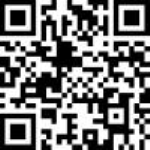探討科學想像力融入國小自然科課程單元之成效:以「簡單力學-力與運動」單元為例
作者:南臺學校財團法人南臺科技大學教育領導與評鑑研究所王佳琪、臺南市天主教私立寶仁國民小學楊棨棠
卷期:64卷第1期
日期:2019年3月
頁碼:213-240
DOI:10.6209/JORIES.201903_64(1).0008
摘要:
本研究目的旨在以科學想像力歷程模式為基礎,探討科學想像力融入國小自然科「簡單力學─力與運動」課程教材,是否能有效提升國小高年級學生的科學想像力及教學品質。研究設計採準實驗不等組前、後測設計,以臺南市某國小六年級兩班共72人為研究對象,分為實驗組36人與對照組36人,實驗教學為期五週。本研究使用「科學想像力情境測驗」為研究工具,包含漫想力、聯想力、奇想力及妙想力四個成分,分別在實驗教學前、後進行施測,並以兩組在實驗教學前後的差異分數,進行獨立樣本t檢定與效果量分析;同時,更輔以學生課堂發言、同儕互動紀錄及課程教學自我檢核,檢視學生科學想像力教學成效,以作為教學提升之回饋。研究結果指出,實驗組學生的科學想像力及課堂表現優於對照組學生,表示科學想像力融入自然科教學能顯著提升國小高年級學生的科學想像力,其結果對於未來科學教育融入想像力教學有正面成效。
關鍵詞:科學想像力、科學想像力情境測驗、科學想像力歷程模式、準實驗設計
 《詳全文》
《詳全文》

參考文獻:
- 王佳琪、何曉琪、鄭英耀、邱文彬(2017)。科學想像力學習進程之驗證:測量觀點。教育心理學報,49(1),69-94。doi:10.6251/BEP.20161005 【Wang, C.-C., Ho, H.-C., Cheng, Y.-Y., & Chiou, W.-B. (2017). Validation of the learning progression in scientific imagination: A measurement perspective. Bulletin of Educational Psychology, 49(1), 69-94. doi:10.6251/ BEP.20161005】
- 王佳琪、鄭英耀、何曉琪(2016)。科學想像力圖形測驗之發展。教育科學研究期刊,61(4),177-204。doi:10.6209/JORIES.2016.61(4).07 【Wang, C.-C., Cheng, Y.-Y., & Ho, H.-C. (2016). Development of the scientific imagination test-figural. Journal of Research in Education Sciences, 61(4), 177-204. doi:10.6209/JORIES.2016.61(4).07】
- 吳可久、蘇于倫、曹筱玥(2013)。由激發想像力思維探索設計課程教學方式。建築學報,83,19-35。 【Wu, K.-C., Su, Y.-L., & Tsau, S.-Y. (2013). Explore the teaching models for design studio by the thinking stimulation of imagination. Journal of Architecture, 83, 19-35.】
- 吳清山(2002)。創意教學的重要理念與實施策略。臺灣教育,614,2-8。 【Wu, C.-S. (2002). The important ideas and practice of creative teaching. Taiwan Education Review, 614, 2-8.】
- 吳靜吉(2002)。華人學生創造力的發掘與培育。應用心理研究,15,17-42。 【Wu, J.-J. (2002). Enticing the crouching tiger and awakening the hidden dragon: Recognizing and nurturing creativity in Chinese students. Research in Applied Psychology, 15, 17-42.】
» 展開更多
- 王佳琪、何曉琪、鄭英耀、邱文彬(2017)。科學想像力學習進程之驗證:測量觀點。教育心理學報,49(1),69-94。doi:10.6251/BEP.20161005 【Wang, C.-C., Ho, H.-C., Cheng, Y.-Y., & Chiou, W.-B. (2017). Validation of the learning progression in scientific imagination: A measurement perspective. Bulletin of Educational Psychology, 49(1), 69-94. doi:10.6251/ BEP.20161005】
- 王佳琪、鄭英耀、何曉琪(2016)。科學想像力圖形測驗之發展。教育科學研究期刊,61(4),177-204。doi:10.6209/JORIES.2016.61(4).07 【Wang, C.-C., Cheng, Y.-Y., & Ho, H.-C. (2016). Development of the scientific imagination test-figural. Journal of Research in Education Sciences, 61(4), 177-204. doi:10.6209/JORIES.2016.61(4).07】
- 吳可久、蘇于倫、曹筱玥(2013)。由激發想像力思維探索設計課程教學方式。建築學報,83,19-35。 【Wu, K.-C., Su, Y.-L., & Tsau, S.-Y. (2013). Explore the teaching models for design studio by the thinking stimulation of imagination. Journal of Architecture, 83, 19-35.】
- 吳清山(2002)。創意教學的重要理念與實施策略。臺灣教育,614,2-8。 【Wu, C.-S. (2002). The important ideas and practice of creative teaching. Taiwan Education Review, 614, 2-8.】
- 吳靜吉(2002)。華人學生創造力的發掘與培育。應用心理研究,15,17-42。 【Wu, J.-J. (2002). Enticing the crouching tiger and awakening the hidden dragon: Recognizing and nurturing creativity in Chinese students. Research in Applied Psychology, 15, 17-42.】
- 林文川(2003)。創造性思考教學策略之研究:以國文科對聯教學為例。課程與教學季刊,7(2),115-137、188。doi:10.6384/CIQ.200404.0115 【Lin, W.-C. (2003). Teaching Chinese couplets as an inquiry about valid strategies of creative thinking instruction. Curriculum & Instruction Quarterly, 7(2), 115-137, 188. doi:10.6384/CIQ.200404.0115】
- 林福貹(2006)。論述科學創造力。屏縣教育季刊,26,9-13。 【Lin, F.-S. (2006). Scientific creativity. PingTung Eudcation, 26, 9-13.】
- 邱發忠、陳學志、林耀南、涂莉苹(2012)。想像力構念之初探。教育心理學報,44(2),389-410。 【Chiu, F.-C., Chen, H.-C., Lin, Y.-N., & Tu, P. L.-P. (2012). The exploratory study on the construct of imagination. Bulletin of Educational Psychology, 44(2), 389-410.】
- 洪文東(2002)。創造型兒童之思考特性與科學創造力的關聯性。屏東師院學報,16,355-394。 【Hung, W.-J. (2002). A relationship study between science creativity and thinking characteristics of creative gifted children. Journal of Pingtung Teachers College, 16, 355-394.】
- 教育部(2003)。創造力教育白皮書。臺北市:作者。 【Ministry of Education. (2003). White paper on creative education. Taipei, Taiwan: Author.】
- 莊淇銘(2009)。知識不是力量。臺北市:晨星。 【Chuang, C.-M. (2009). Knowledge is not power. Taipei, Taiwan: Morning Star.】
- 陳龍安(2008)。創造思考教學的理論與實際(簡明版)。臺北市:心理。 【Chen, L.-A. (2008). The theory and practice of creative thinking and teaching. Taipei, Taiwan: Psychological.】
- Ayas, M. B., & Sak, U. (2014). Objective measure of scientific creativity: Psychometric validity of the creative scientific ability test. Thinking Skills and Creativity, 13, 195-205. doi:10.1016/j.tsc. 2014.06.001
- Cohen, J. (1988). Statistical power analysis for the behavioral sciences (2nd ed.). Hillsdale, NJ: Lawrence Associates.
- Ho, H.-C., Wang, C.-C., & Cheng, Y.-Y. (2013). Analysis of the scientific imagination process. Thinking Skills and Creativity, 10, 68-78. doi:10.1016/j.tsc.2013.04.003
- Hu, W., & Adey, P. (2002). A scientific creativity test for secondary school students. International Journal of Science Education, 24(4), 389-403. doi:10.1080/09500690110098912
- McCormack, A. (2010). Message from the NSTA president: Imagine and invent: Create a great future. Journal of College Science Teaching, 40(1), 8-9.
- Osborn, A. F. (1953). Applied imagination: Principles and procedures of creative thinking. New York, NY: Charles Scribner’s Sons.
- Sternberg, R. J., & Williams, W. M. (1996). How to develop student creativity. Alexandria, VA: Association for Supervision and Curriculum Development.
- The Next Generation Science Standards. (2013). Appendix h – Understanding the scientific enterprise: The nature of science in the next generation science standards. Retrieved from http://www.nextgenscience.org/sites/ngss/files/Appendix%20H%20-%20The%20Nature%20of%20Science%20in%20the%20Next%20Generation%20Science%20Standards%204.15.13.pdf
- Torrance, E. P. (1965). Mental health and constructive behavior. Belmont, CA: Wadsworth.
- Vygotsky, L. S. (1930/2004). Imagination and creativity in childhood. Journal of Russian and East European Psychology, 42(1), 7-97. doi:10.1080/10610405.2004.11059210
- Wang, C.-C., Ho, H.-C., & Cheng, Y.-Y. (2015). Building a learning progression for scientific imagination: A measurement approach. Thinking Skills and Creativity, 17, 1-14. doi:10.1016/ j.tsc.2015.02.001
- Wang, C.-C., Ho, H.-C., Wu, J.-J., & Cheng, Y.-Y. (2014). Development of the scientific imagination model: A concept-mapping perspective. Thinking Skills and Creativity, 13, 106-119. doi:10. 1016/j.tsc.2014.04.001
- Ward, T. B. (1994). Structured imagination: The role of category structure in exemplar generation. Cognitive Psychology, 27(1), 1-40. doi:10.1006/cogp.1994.1010
- Wilson, M. (2005). Constructing measures: An item response modeling approach. Mahwah, NJ: Lawrence Erlbaum.
- Wilson, M. (2009). Measuring processions: Assessment structures underlying a learning progression. Journal of Research in Science Teaching, 46(6), 716-730. doi:10.1002/tea.20318
Journal directory listing - Volume 64 (2019) - Journal of Research in Education Sciences【64(1)】March
Effectiveness of an Instructional Experiment Using Scientific Imagination Integrated Into a Nature Science Course for Elementary School Students: An Example of “Simple Machines − Force and Motion”
Author: Chia-Chi Wang (Graduate Institute of Educational Leadership and Evaluation, Southern Taiwan University of Science and Technology), Chi-Tang Yang (Catholic Bao-Ren Elementary School)
Vol.&No.:Vol. 64, No.1
Date:March 2019
Pages:213-240
DOI:10.6209/JORIES.201903_64(1).0008
Abstract:
This study primarily aimed to investigate the influence of the effectiveness of an instructional experiment employing scientific imagination integrated into a nature science course for elementary school students. In this study, quasi-experimental methods with a nonequivalent pretest-posttest design were used. This study included 72 elementary school students as participants. The participants were categorized into the experimental (n = 36) and control groups (n = 36). For the experimental group, a scientific imagination process was integrated into the nature science course for 5 weeks. The instruments of this study included a scientific imagination test-verbal (SIT-Verbal). An independent sample t test and Cohen’s d were used to examine the scientific imagination of students regarding the instructions. The results indicated that students who received scientific imagination teaching exhibited scientific imagination and class performance superior to that of students in the control group. This result indicates that the incorporation of scientific imagination into teaching can significantly increase the scientific imagination of students and does not deteriorate their performance in terms of learning science. The use of science education using imaginative teaching has a positive feedback.
Keywords:quasi-experimental methods, scientific imagination, scientific imagination process, scientific imagination test-verbal